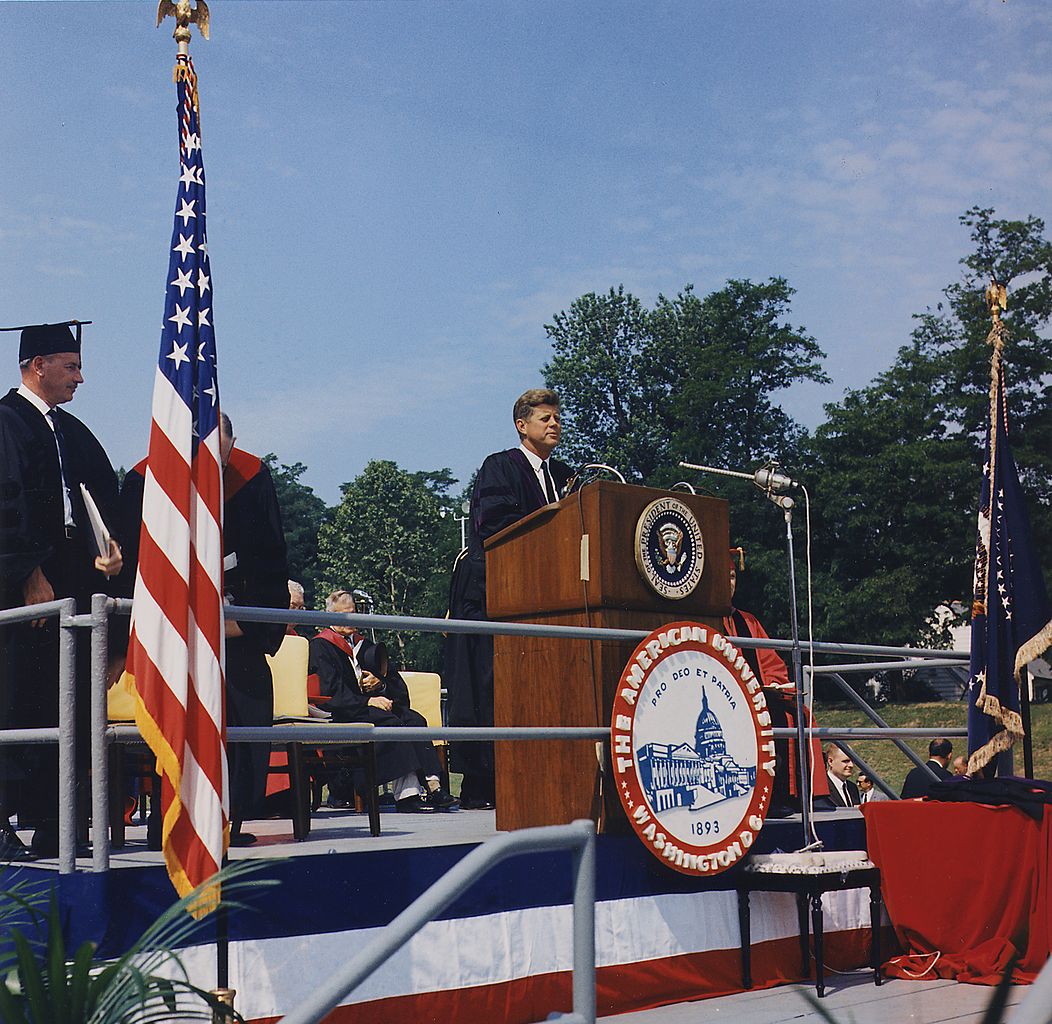Doc7505
Diamond Member
- Feb 16, 2016
- 19,665
- 35,756
- 2,430
Why JFK Was Deemed a Threat to National Security

Why JFK Was Deemed a Threat to National Security – The Future of Freedom Foundation
Three days ago — June 10 — was the 60th anniversary of President Kennedy’s Peace Speech at American University. Reading or listening to the speech today, it is not difficult to see why the U.S. national-security establishment deemed Kennedy to be a grave threat to national security, just as it...
 www.fff.org
www.fff.org
Three days ago — June 10 — was the 60th anniversary of President Kennedy’s Peace Speech at American University. Reading or listening to the speech today, it is not difficult to see why the U.S. national-security establishment deemed Kennedy to be a grave threat to national security, just as it did with certain foreign leaders, such as Prime Minister Mohammad Mossadegh of Iran, Congo leader Patrice Lumumba, Guatemalan President Jacobo Arbenz and, later, President Salvador Allende of Chile.
For some 150 years, the federal government had been a limited-government republic. After World War II, however, the federal government was converted to a national-security state.
The difference was day and night.
With a limited-government republic, there was openness and transparency in governmental operations. Moreover, there was only a relatively small, basic military force. No Pentagon, no vast military-industrial complex, no CIA, no NSA, and no empire of foreign military bases. Governmental powers were limited and tightly constrained. No power to assassinate, kidnap, torture, or indefinitely detain people. No power to initiate coups or regime-change operations in foreign countries. No power of mass secret surveillance.
With a national-security state, dark-side secrecy became everything. “National security” became the two most important words in the American political lexicon. A large, permanent military establishment, along with the CIA and the NSA, came into existence. This vast national-security establishment vested itself with omnipotent, totalitarian-like powers, including assassination, torture, coups, secret surveillance, kidnapping, and indefinite detention. It established a vast empire of military bases, both foreign and domestic, and initiated a program of regime change in foreign nations. Foreign wars in faraway lands, such as Korea and Vietnam, became the norm.
~Snip~
Kennedy knew the danger that he faced in the war between him and the national-security establishment for the future direction of America. He had listened to President Eisenhower’s Farewell Address, when Ike warned the American people of the dangers that the national-security state apparatus posed to the rights and liberties of the American people and to America’s democratic processes.
The war between President Kennedy and the national-security establishment came to an end on November 22, 1963. And Americans have been paying the price for that “victory” ever since.
See:
An Encounter with Evil: The Abraham Zapruder Story by Jacob Hornberger
JFK’s War with the National-Security Establishment by Douglas Horne
The Kennedy Autopsy by Jacob Hornberger
The Kennedy Autopsy 2 by Jacob Hornberger
Commentary:
Had Kennedy lived, we’d be living in a totally different society today, one characterized by a limited-government republic rather than a national-security state — one without the militarism, forever wars, conflicts, hostilities, crises, chaos, coups, assassinations, torture, and indefinite detention that have become regular and permanent features of American life.
